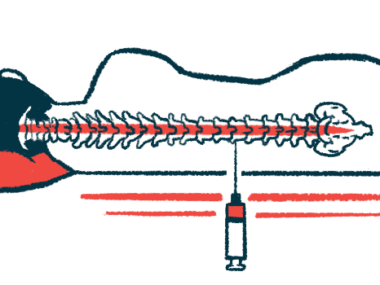Revvity launches platform for streamlined newborn screening
The EONIS Q system is intended to make the process simpler, faster
Written by |

Revvity has launched its EONIS Q system for faster and simplified newborn molecular screening of spinal muscular atrophy (SMA) and severe combined immunodeficiency (SCID), the company announced.
According to Revvity, this easy-to-use platform reduces the complexity and costs for laboratories, so they can expand newborn screening capabilities. The system holds the European Commission CE-IVD marking for in vitro (in the lab) diagnostic medical devices sold in Europe and other countries accepting the CE mark.
“Helping children get a healthier start to life is at the heart of our work and making molecular testing for inherited conditions like SMA and SCID more accessible can help further that aim,” Petra Furu said in a press release. Furu is general manager of reproductive health at Revvity, which is PerkinElmer’s rebrand of its life sciences business.
SMA is caused mainly by mutations in the SMN1 gene, resulting in little or no survival motor neuron protein (SMN) being produced. This leads to the progressive loss of motor neurons — nerve cells that control voluntary movements — and causes disease symptoms such as muscle weakness and low muscle tone.
Many U.S. states and other countries include SMA in newborn screening programs, in which all babies are systematically tested for congenital conditions within the first few days after birth.
SMA, SCID, and X-linked agammaglobulinemia (XLA) are rare genetic disorders that can be fatal if not detected and treated properly early. This makes their early detection essential so that children with a positive diagnosis receive adequate care as soon as possible.
Particularly for SMA, newborn screening and prompt access to disease-modifying therapies that slow or halt the disease progression have been shown to lead to better disease outcomes.
However, molecular testing for these congenital disorders is relatively low, due in part to its high costs and the technical expertise required to perform the tests and interpret the results.
How the EONIS Q system works
The EONIS Q system uses an innovative workflow with the EONIS SCID-SMA kit, which simplifies and standardizes simultaneous screening for SMA, SCID and X-linked agammaglobulinemia (XLA) using a single dried blood sample. All those rare genetic disorders weaken the immune system, leaving children more prone to infections.
The assay consists of four steps:
- a dried blood sample preparation for further examination
- extraction of the DNA
- simultaneous analysis of several genes using a lab technique called real-time polymerase chain reaction (RT-PCR), which produces millions of copies of a DNA sequence using the EONIS Q96 instrument
- result interpretation using the dedicated EONIS EASI software.
All workflow steps can be completed in less than three hours, meaning in one instrument researchers can run more than 200 samples per day. By having more instruments, labs can scale to higher volumes of daily samples.
The EONIS Q introduces three key innovations:
- integration of automated systems using PCR plates with dried reagents, allowing faster and simultaneous analysis of several genes
- compact equipment that can suit both smaller and larger labs
- a newborn screening dedicated software (EASI) that eases healthcare collaborative decisions and quick intervention.
Compared to other methods, EONIS Q uses fewer consumables and one-time-use plasticware, further optimizing resources and reducing cost efficiency.
Breaking down barriers to newborn screening
“Without compromising quality, speed or test result accuracy, the EONIS Q system is designed to break down some of the common barriers that prevent newborn screening labs from adopting these tests,” Furu said.
The EONIS system was approved by the U.S. Food and Drug Administration last year and is available throughout the country. This system uses wet PCR, meaning the solutions and reagents have to be prepared, although DNA extraction and solution preparation can be done automatically using a specific liquid handling device.




